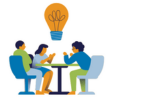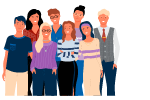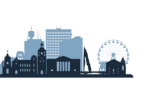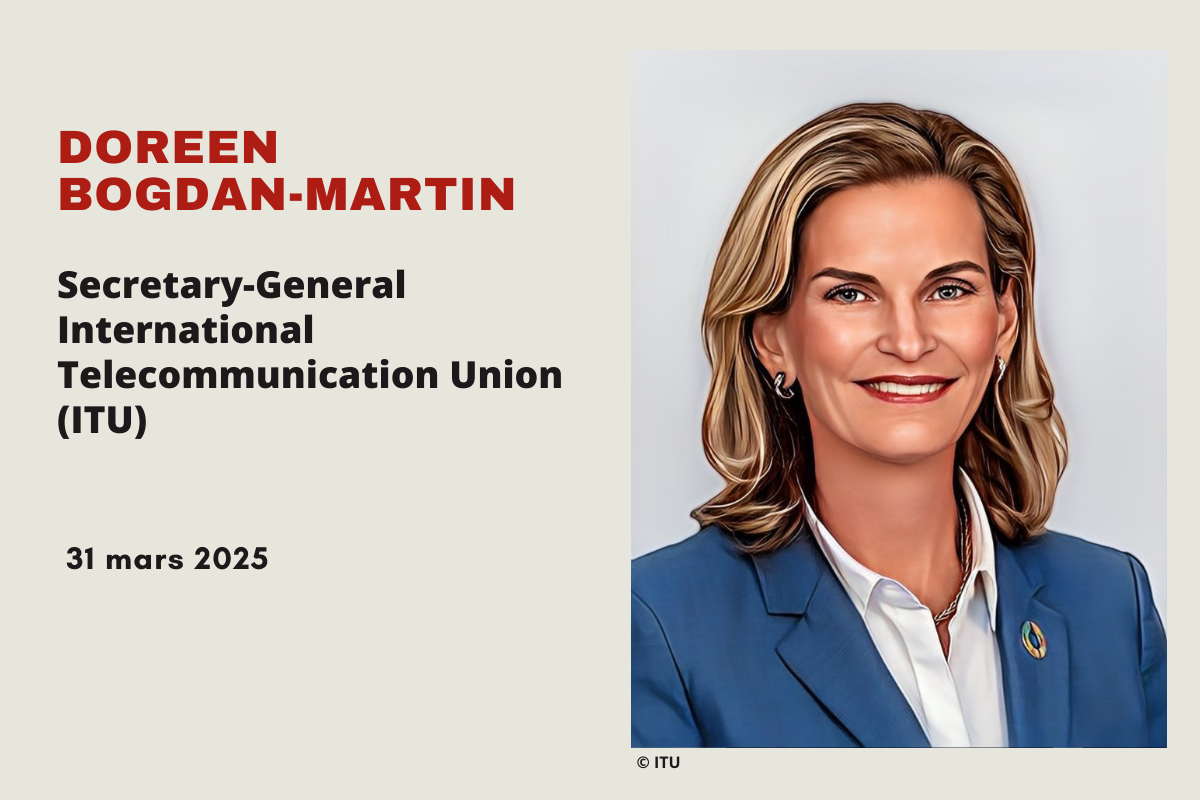The interview | Doreen Bogdan-Martin
 |
|
This year, as we mark the 160th anniversary of the International Telecommunication Union (ITU), I’ve been reflecting on a journey that's been nothing short of extraordinary. From the telegraph to the telephone, space communications and emerging technologies, including artificial intelligence and quantum computing, ITU has consistently supported how the world connects. When I joined ITU, less than 1% of the world's population had access to the Internet. 30 years later, two-thirds of humanity is connected. But that means 2.6 billion are still offline. Looking back on ITU’s journey, I’m so proud of the commitment and dedication of our staff to connect every one of them meaningfully. In Geneva and around the world, ITU is home to a remarkable blend of talent, including engineers and specialists in some of the most exciting fields. Their commitment not only drives our mission forward but also ensures that ITU stays at the leading edge of tech.
 |
|
One of the most pressing challenges we face is the persistent digital divide. At a time when Internet access has become as vital as electricity, we cannot accept a third of humanity missing out. Internet use remains tightly linked to development, too. According to ITU Facts & Figures 2024, 93% of the population is estimated to be connected in high-income countries, compared to only 27% in low-income countries. At the same time, we are navigating the transformative potential of artificial intelligence. From agents to advanced medical diagnostics, precision agriculture and language translation, AI is transforming how we live, work, and interact. But countries are at different stages of their respective AI journeys. Each contends with regulatory issues, technical talent shortages, and risks like misinformation, job displacement and environmental impacts. As the UN agency for digital technologies, ITU leads global efforts to maximize the potential of AI for good. Our focus is on facilitating dialogue that not only encourages the ethical use of AI but also opens up opportunities like skilling, and levels the playing field. We want to make sure AI is a catalyst for bridging, not widening, the digital divide.
 |
|
Based at the heart of International Geneva, ITU collaborates with a wide range of stakeholders, each with increasing interest in advancing global digital transformation. As co-leads of the Working Group on Digital Technologies, we help implement the Global Digital Compact and Pact for the Future together with other Geneva-based UN agencies, including through an informal network called “Geneva Digital Kitchen.” Through the ITU Council, Study Groups and Ambassador Briefings, we facilitate exchanges and raise awareness of the latest digital issues among our 194 Member States. We also work with 1,000-plus sector members from the private sector, including several Geneva-based companies and academia, such as the University of Geneva (UNIGE) and the Geneva Graduate Institute, to harness local expertise and innovation. Our aim is to leverage the city’s unique ecosystem to promote a more connected, inclusive, and sustainable digital future for all. A great example of this is the new Giga Connectivity Centre at the Geneva Biotech Campus.
 |
|
With the rise of transformative technologies like generative artificial intelligence, the need for multi-stakeholder digital cooperation is now greater than ever. As a digital cooperation hub for the world, Geneva is the perfect launchpad to tackle this challenge with its world-renowned convening power. The city's legacy provides fertile ground for dialogue and decision-making that shape the world, including on the tech front. ITU's annual AI for Good Global Summit, to be held in July at Palexpo alongside the WSIS+20 High-Level Event 2025, exemplifies Geneva's strength in shaping our digital landscape. The challenge is to ensure that discussions and agreements made in Geneva lead to tangible actions and outcomes. This is why ITU actively engages with the diplomatic community, including with other UN agencies in Geneva, and regularly holds briefings on the latest in emerging technologies.
 |
|
I had the pleasure of starting 2025 with the 15th anniversary of the Model UN of the Lycée International de Ferney-Voltaire, also known as FerMUN. It was the best way to kick off the very same year ITU celebrates its 160th birthday! I was so inspired by all the aspiring diplomats – their passion, their professionalism, and especially their knowledge about some of the most pressing issues facing our world, including digital. FerMUN participants go on to do big things in the world of work — and many of their careers involve technology in some form. I can’t wait to see what they do next!
